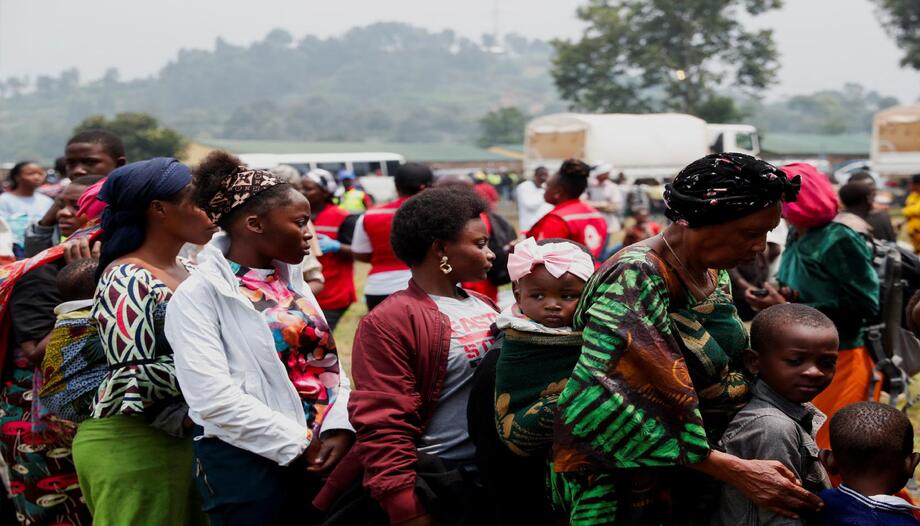With 2.34 million square kilometers, the Democratic Republic of Congo (RDC) is the second largest country in Africa, after Algeria. Endowed with great natural, mineral and hydrographic resources, in the absence of official census for many decades, its population is estimated at about 80 million people, with more than 60 % of the population under 25 years of age.
A former Belgian colony since 1885 and independent since June 30, 1960, the DRC is a land of dramatic tragedies, with human development indices among the five lowest in the world. Marked by a succession of bloodthirsty dictatorships and the total absence of the State, its political history is that of a people deprived of fundamental freedoms, subjected to violence and submerged in all forms of misery, despite its country's vast resources. The attribution of the 2018 Nobel Prize to gynecologist Denis Mukwege has reminded the world that the DRC has been living, since 1996, a war for the control of the exploitation of strategic minerals such as coltan, which has claimed the lives of between 6 and 12 million people, with millions of internally displaced persons and refugees in neighboring countries. And in this war, one of the weapons is cruel sexual violence against women and girls.
To this long list of tragedies, we must add, as of August 2018, the ninth Congolese outbreak of Ebola since, in 1976, the disease was discovered in the DRC itself. Bounded by the northeastern provinces of Ituri and North Kivu, the current outbreak has been diagnosed in about 2,200 people, with about 1,500 dead. And neither the Congolese government, which has great experts in the fight against the disease, nor the World Health Organization have been able to stop the outbreak, mainly because of the lack of material resources, the insecurity in the region with recurrent and violent attacks against the centers for the care of the sick, and the resistance of part of the population to the health plan.
Church and democracy
Despite its many political and social problems, the DRC is also the land of hope and life, where people are constantly struggling against tragedy to improve their living conditions. And in this struggle, the Catholic Church plays a role recognized by all. The commitment of the National Episcopal Conference of Congo (CENCO) to justice and peace is well known, as are its appeals and efforts for the advent of democracy and the rule of law. Its latest contribution to the dialogue between political and social actors has resulted in the organization of presidential and legislative elections on December 30, 2018, thanks to the call for San Silvestre Agreement (December 31, 2016).
The struggle of the Catholic Church in the DRC has allowed the first peaceful alternation to the presidency of the republic since 1965, with the election of Felix-Antoine Tshisekedi as the fifth president of the DRC, after 18 years of Joseph Kabila's government. As denounced by CENCO, these were not perfect elections, but the facts are showing that they are the beginning of a hopeful era in the history of the DRC.
Social services: Projet Ditunga
The Catholic Church in the Congo, the first in all of Africa, not only denounces, but is also very present in the social life of the country, assuming more than 50 % of the social services of the country: schools, universities, health centers, hospitals, orphanages, assistance to the poor and various social development programs through parishes, congregations, associations and specialized structures such as Caritas....
It is not a question here of a cold and faceless administration, but of concrete persons, with names and surnames. This is the case of Father Apollinaire Cibaka Cikongo, a priest of the diocese of Mbujimayi, in the province of East Kasayi, in central Congo. Ordained on August 1, 1994 and doctor of theology (2002), Apollinaire is, among other ministries, formator and professor of theology at the regional seminary of Kasayi, professor at two local universities and executive secretary of the assembly of the eight bishops of the ecclesiastical province of Kananga. In 2006 he founded Ditunga Projecta Catholic and community association through which it has channeled aid from families and institutions in Spain for works of evangelization, schooling, health and hygiene, agriculture, environmental protection, promotion of women, protection of abandoned children, and legal and social assistance to prisoners, etc.







